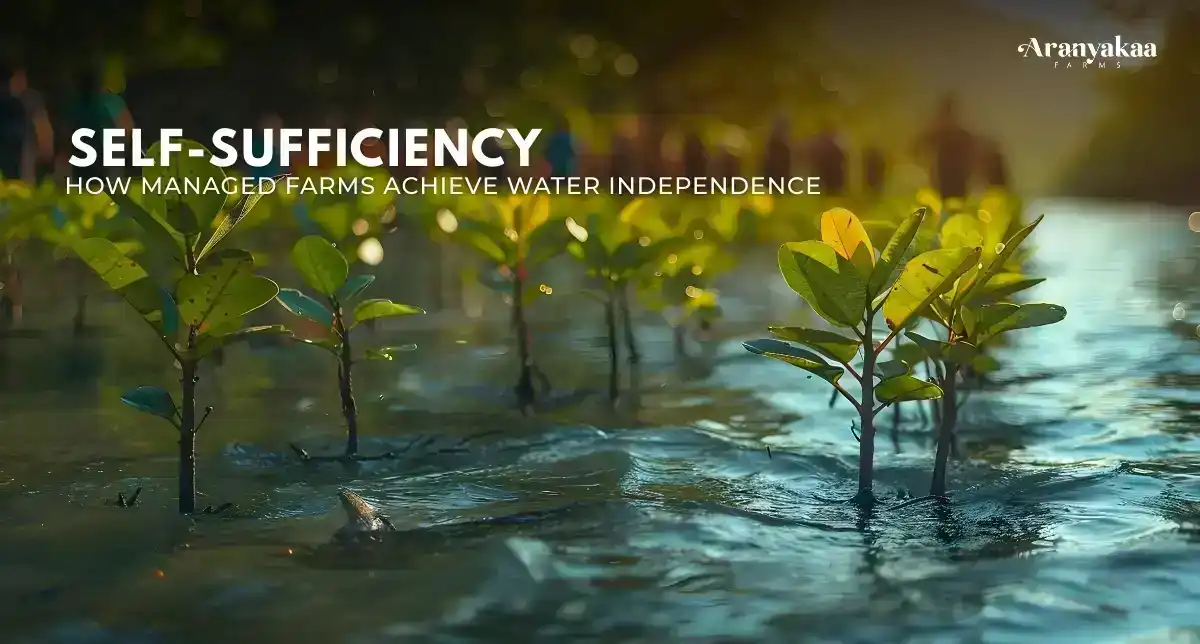How Managed Farms Achieve Water Independence...
Farmland Lifestyle / 10 Minutes Read


03 Sep 2025
Water independence is a game-changer for modern managed farms, especially in water-stressed regions like around Bengaluru. Achieving this self-sufficiency means farms can rely less on unpredictable municipal or external sources, ensuring sustainability and cost savings.
Practical Strategies for Water Independence
1. Rainwater Harvesting & Reservoirs Managed farms like those at Aranyakaa Farms use advanced rainwater harvesting systems collecting and storing rainwater in artificial lakes and numerous recharge pits. For example, the Vrindavan project includes a 45 lakh litre artificial lake, while the Berigai project boasts nearly 100 rainwater harvesting pits and a 3-acre man-made lake. This infrastructure captures monsoon water, replenishing groundwater and providing a steady supply throughout dry periods.
2. Smart, IoT-Enabled Water Management Real-time water monitoring via IoT sensors measures soil moisture, weather conditions, and water use continuously. This data drives automated irrigation systems that deliver precise water amounts exactly when plants need it minimizing wastage and maximizing yields. Remote management applications let farm managers and owners control water usage from anywhere, improving responsiveness during droughts or heatwaves.
3. Crop & Soil Optimization Self-sufficient farms choose crops based on water productivity, favouring varieties that use water efficiently (e.g., millets, sorghum, aloevera) and adjust planting methods (like raised beds or mulches) to reduce evaporation and runoff. This agronomic precision boosts water use efficiency (WUE) significantly, supporting higher yields with less irrigation.
Real-Time Data & Results
Studies show managed farms with integrated water solutions reduce water consumption by 30-60% while increasing water productivity substantially (up to 2-3x compared to traditional rainfed farming). Such efficiency not only drives better harvests but also lessens environmental impact.
Why Water Independence Matters
- Sustainability: Reducing dependence on dwindling groundwater and municipal supplies preserves ecosystems.
- Cost Savings: Avoid costly water purchases or energy-intensive pumping; rain-captured water is free.
- Resilience: Farms remain productive even during droughts or water restrictions.
- Investor Confidence: Reliable water boosts crop consistency, ensuring steady returns.
Managed farms achieve water independence through integrated, smart strategies combining rainwater harvesting, IoT-enabled irrigation, and crop selection tailored to water efficiency. This approach turns farmland into resilient, sustainable, and profitable investments providing food security and peace of mind in an uncertain climate.




